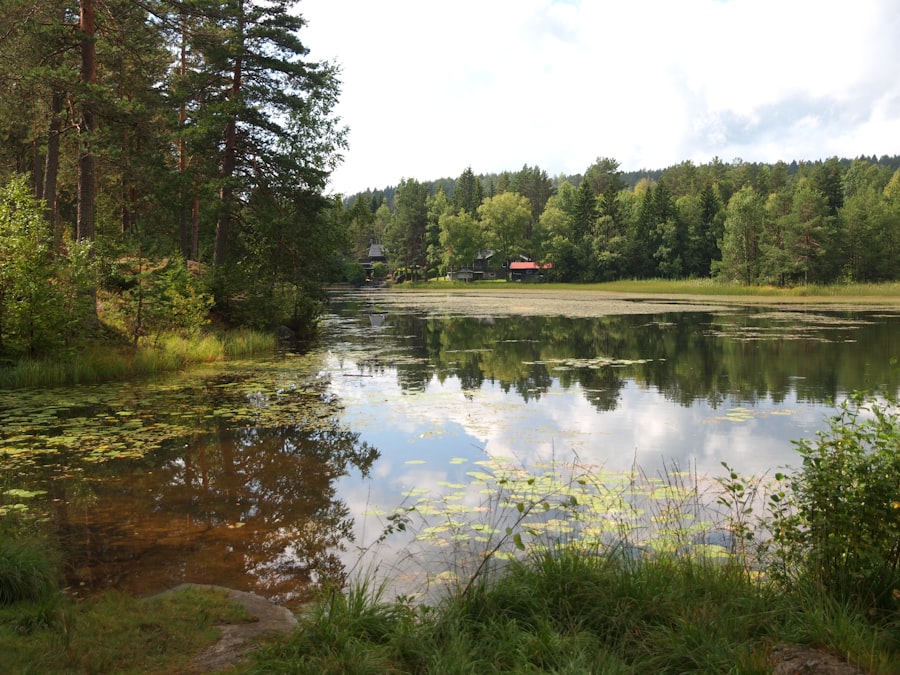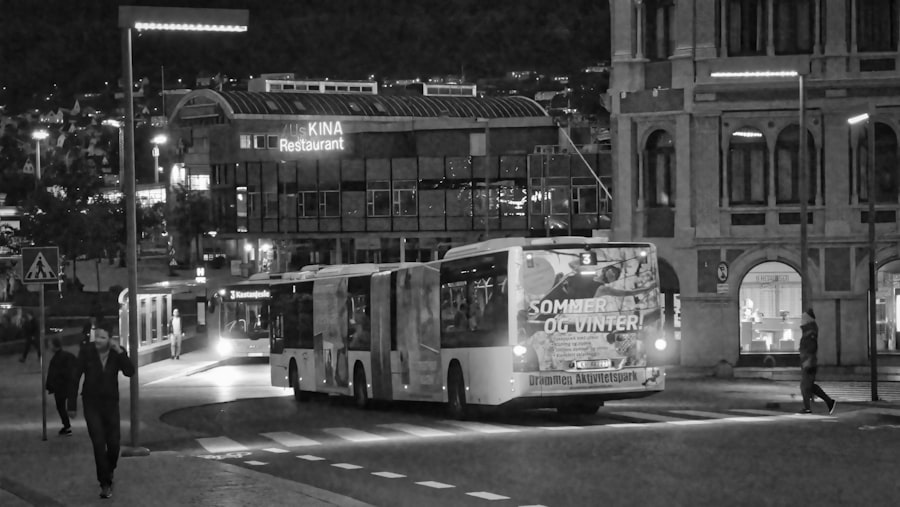Navigating the intricacies of opening hours in Norway can be a daunting task for newcomers and even seasoned residents. The Norway Relocation Group is here to assist you in understanding these nuances, ensuring that your transition to life in Norway is as smooth as possible. Whether you are moving for work, study, or personal reasons, having a grasp of local customs, including business hours, is essential for integrating into Norwegian society.
This article will delve into the various factors that shape opening hours in Norway, providing you with a comprehensive understanding of this aspect of daily life. In Norway, opening hours can vary significantly depending on the type of establishment, location, and even the day of the week. While many shops and services adhere to a standard schedule, there are exceptions that can catch newcomers off guard.
Understanding these patterns not only helps in planning your day but also enhances your overall experience in this beautiful Scandinavian country. As we explore the history, cultural influences, and current trends surrounding Norwegian opening hours, you will gain valuable insights that will aid your adjustment to life in Norway. Plan your relocation with confidence. Book a personal meeting with the Norway Relocation Group today.
Summary
- Norwegian opening hours are influenced by a variety of factors including religion, labour laws, consumer behaviour, and globalization.
- The concept of “Blue Laws” in Norway refers to restrictions on certain activities, including opening hours, on Sundays and public holidays.
- Labour laws in Norway play a significant role in determining opening hours, with strict regulations in place to protect workers’ rights.
- Norwegian opening hours differ from those in other European countries, with shorter hours and restrictions on Sundays and public holidays.
- The future of Norwegian opening hours is subject to ongoing debate, with potential changes to regulations and consumer demands shaping the landscape.
The History of Norwegian Opening Hours
The evolution of opening hours in Norway is deeply intertwined with the country’s socio-economic development. Historically, Norwegian businesses operated under a more rigid schedule, often dictated by agricultural cycles and seasonal changes. In rural areas, for instance, shopkeepers would adjust their hours based on daylight and harvest seasons, leading to a more flexible approach to business operations.
This adaptability was essential for survival in a landscape where farming and fishing were the primary sources of income. As Norway transitioned into an industrialised nation in the late 19th and early 20th centuries, the standardisation of opening hours began to take shape. The rise of urban centres brought about a need for more consistent business practices, leading to the establishment of fixed opening hours for shops and services.
This shift was further influenced by the introduction of labour laws and regulations that aimed to protect workers’ rights and ensure fair working conditions. Consequently, the modern framework of Norwegian opening hours emerged, balancing the needs of consumers with the rights of employees.
The Influence of Religion on Norwegian Opening Hours

Religion has played a significant role in shaping the cultural landscape of Norway, and its influence extends to opening hours as well. Traditionally, Sunday has been regarded as a day of rest in many Christian communities, leading to restrictions on business operations during this time. For years, most shops remained closed on Sundays, allowing families to spend time together and attend church services.
This practice reflected the deep-rooted values of community and family that are still prevalent in Norwegian society today. However, as secularism has grown in prominence over the years, attitudes towards Sunday trading have evolved. In recent decades, there has been a gradual shift towards allowing shops to open on Sundays, particularly in urban areas where consumer demand has increased.
This change has sparked debates about the balance between maintaining cultural traditions and accommodating modern lifestyles. While some Norwegians embrace the convenience of Sunday shopping, others argue for the preservation of a day dedicated to rest and reflection.
The Impact of Labour Laws on Norwegian Opening Hours
Labour laws in Norway have had a profound impact on the regulation of opening hours across various sectors. The country is known for its strong emphasis on workers’ rights, which has led to legislation that governs working hours and conditions. The Working Environment Act stipulates maximum working hours and mandates rest periods for employees, ensuring that they are not overworked or subjected to unfair practices.
These regulations have resulted in a more structured approach to opening hours for businesses. For instance, many shops are required to close by a certain time during weekdays and remain closed on public holidays. This framework not only protects employees but also promotes a healthier work-life balance.
As a result, consumers have come to expect certain norms regarding when they can access services, which has shaped their shopping habits and preferences.
Understanding the Concept of “Blue Laws” in Norway
“Blue laws,” or laws that restrict certain activities on specific days for religious or moral reasons, have historically influenced opening hours in Norway. While these laws have become less stringent over time, remnants of their impact can still be observed today. For example, restrictions on alcohol sales during certain hours or on Sundays reflect the lingering effects of these regulations.
In contemporary Norway, blue laws primarily manifest in the form of limited trading hours for specific industries, such as liquor stores and grocery shops selling alcohol. These regulations aim to promote responsible consumption and align with societal values surrounding alcohol use. As such, understanding these laws is crucial for newcomers who may be unfamiliar with the nuances of purchasing alcohol or other restricted items.
The Role of Consumer Behaviour in Norwegian Opening Hours

Consumer behaviour plays a pivotal role in shaping opening hours across Norway. As lifestyles evolve and preferences shift, businesses must adapt to meet the demands of their clientele. In recent years, there has been a noticeable trend towards longer opening hours, particularly in urban areas where competition is fierce.
Consumers increasingly expect convenience and flexibility when it comes to shopping and accessing services. This shift has prompted many retailers to extend their operating hours beyond traditional limits. For instance, supermarkets and convenience stores often remain open late into the evening or even 24/7 to cater to busy professionals and families.
Additionally, online shopping has gained immense popularity, further influencing brick-and-mortar stores to adjust their hours to remain competitive in an ever-changing market landscape.
The Effect of Globalization on Norwegian Opening Hours
Globalisation has had a significant impact on various aspects of life in Norway, including opening hours. As international brands and businesses establish a presence in the country, they often bring with them different practices regarding operating hours. This influx of global influences has led to a gradual shift towards more flexible and extended opening hours across many sectors.
Moreover, exposure to global consumer trends has altered expectations among Norwegians themselves. With increased travel and access to international markets, many consumers now seek the convenience associated with extended shopping hours that they may have experienced abroad. As a result, local businesses are compelled to adapt their operating schedules to remain relevant and competitive in an increasingly interconnected world.
Comparing Norwegian Opening Hours with Other European Countries
When comparing Norwegian opening hours with those of other European countries, distinct differences emerge that reflect cultural values and societal norms. For instance, many Southern European nations tend to embrace a more relaxed approach to business hours, often closing shops during the afternoon for siestas or extended lunch breaks. In contrast, Norway’s structured approach prioritises efficiency while still allowing for ample leisure time.
In Northern European countries like Sweden and Denmark, opening hours are generally similar to those in Norway; however, there are variations based on local customs and consumer preferences. For example, while many shops in Sweden may remain open later into the evening compared to their Norwegian counterparts, both countries share a commitment to protecting workers’ rights through regulated working hours.
The Debate Surrounding Extended Opening Hours in Norway
The topic of extended opening hours has sparked considerable debate within Norwegian society. Proponents argue that longer operating hours would enhance consumer convenience and stimulate economic growth by attracting more customers. They contend that adapting to modern lifestyles is essential for businesses to thrive in an increasingly competitive market.
Conversely, opponents raise concerns about the potential negative impact on workers’ well-being and family life. Many Norwegians value their leisure time and believe that extending business hours could lead to increased stress for employees who may feel pressured to work longer shifts or irregular hours. This ongoing debate reflects broader societal discussions about work-life balance and the importance of preserving cultural values amidst changing economic landscapes.
The Future of Norwegian Opening Hours
As we look towards the future of Norwegian opening hours, it is clear that ongoing changes will continue to shape this aspect of daily life. With advancements in technology and shifts in consumer behaviour driven by globalisation, businesses will need to remain agile in adapting their operating schedules. The rise of e-commerce will likely further influence traditional retail practices as consumers increasingly seek convenience at their fingertips.
Moreover, discussions surrounding sustainability and ethical consumption may also play a role in shaping future opening hours. As awareness grows around environmental issues and social responsibility, businesses may choose to adopt more sustainable practices by limiting their operating hours or implementing policies that prioritise employee well-being.
Tips for Navigating Norwegian Opening Hours
For newcomers navigating Norwegian opening hours, it is essential to familiarise yourself with local customs and practices. One helpful tip is to plan your shopping trips during weekdays when most shops are open later into the evening compared to weekends when many establishments close earlier. Additionally, be mindful of public holidays when many businesses may be closed entirely.
If you find yourself unsure about specific opening times for certain establishments, don’t hesitate to ask locals or consult online resources for up-to-date information. Engaging with your community can also provide valuable insights into popular shopping habits and hidden gems within your area. Finally, if you are looking to immerse yourself further into Norwegian culture while enhancing your language skills, consider enrolling in courses at the NLS Norwegian Language School in Oslo.
These courses not only offer language instruction but also provide cultural context that can enrich your understanding of daily life in Norway—including navigating those all-important opening hours!

